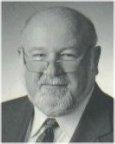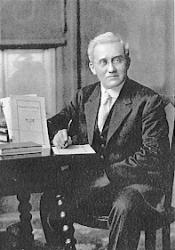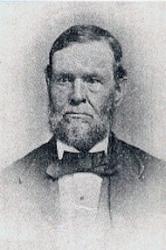Planning worship?
Check out our sister site, ZeteoSearch.org,
for 20+ additional resources related to your search.
- |
User Links
Person Results
‹ Return to hymnal








Export as CSV
Edmond Budry

1854 - 1932 Person Name: Edmund L. Budry Hymnal Number: 227 Author of "Thine Is the Glory" in The Hymnal for Worship and Celebration
Edmond Budry
Peter Scholtes

1938 - 2009 Hymnal Number: 284 Author of "They'll Know We Are Christians by Our Love" in The Hymnal for Worship and Celebration Peter Scholtes (1938–2009)
Peter was born in Evanston, Illinois and grew up in Oak Park, where he attended Ascension School and Fenwick High School before studying at Quigley and St. Mary of the Lake-Mundelein seminaries. He earned his Masters in Adult Education and Organization Development at Boston University.
Peter wrote the hymn "They'll Know We Are Christians by Our Love" while he was a parish priest at St. Brendan's on the South Side of Chicago in the 1960s. At the time, he was leading a youth choir out of the church basement and was looking for an appropriate song for a series of ecumenical, interracial events. When he couldn't find such a song, he wrote the now-famous hymn in a single day. His experiences at St. Brendan's, and in the Chicago Civil Rights movement, influenced him for the rest of his life.
After working in the public sector in Lynn, Massachusetts and Madison, Wisconsin, Peter became a consultant with Joiner Associates in the 1980s, traveling the globe to help businesses engage employees' talents more fully, humanely, and effectively. He co-authored The Team Handbook, which was named one of The 100 Best Business Books of All Time (in the book of that title). After starting Scholtes Seminars and Consulting, he wrote the classic The Leader's Handbook in 1998, which made the definitive case against performance appraisal—a practice he argued was demoralizing and wrong.
--www.lorenz.com/composers
Peter Scholtes
Frederick M. Lehman

1868 - 1953 Hymnal Number: 67 Author of "The Love of God" in The Hymnal for Worship and Celebration Frederick Martin Lehman, 1868-1953
Born: August 7, 1868, Mecklenburg, Schwerin, Germany.
Died: February 20, 1953, Pasadena, California.
Buried: Forest Lawn Memorial Park, Glendale, California.
Lehman emigrated to America with his family at age four, settling in Iowa, where he lived most of childhood. He came to Christ at age 11, as he relates:
One glad morning about eleven o’clock while walking up the country lane, skirted by a wild crab-apple grove on the right and an osage fence, with an old white-elm gate in a gap at the left, suddenly Heaven let a cornucopia of glory descend on the eleven-year old lad. The wild crab-apple grove assumed a heavenly glow and the osage fence an unearthly lustre. That old white-elm gate with its sun-warped boards gleamed and glowed like silver bars to shut out the world and shut him in with the ’form of the fourth,’ just come into his heart. The weight of conviction was gone and the paeans of joy and praise fell from his lips.
Lehman studied for the ministry at Northwestern College in Naperville, Illinois, and pastored at Audubon, Iowa; New London, Indiana; and Kansas City, Missouri. The majority of his life was devoted to writing sacred songs; his first was written while a pastor in Kingsley, Iowa, in 1898. He wrote and published hundreds of songs, and compiled five song books. In 1911, he moved to Kansas City, where he helped found the Nazarene Publishing House.
--www.hymntime.com/tch
Frederick M. Lehman
Eleanor Hull
1860 - 1935 Person Name: Eleanor H. Hull Hymnal Number: 382 Versifier of "Be Thou My Vision" in The Hymnal for Worship and Celebration
Eleanor Hull
James Ellor

1819 - 1899 Hymnal Number: 96 Composer of "DIADEM" in The Hymnal for Worship and Celebration James Ellor United Kingdom 1819-1899. Born at Droylesden, Lancashire, England, he was trained as a hat maker. By age 18 he was leading the Methodist Wesleyan Chapel choir. He later worked for the railroad. In 1838 he brought his choir a new tune he had written for the hymn, “All hail the power of Jesus' name”. It became well received and has been used with the hymn ever since. In 1843 he emigrated to America and resumed the hat making trade. He died in New York City. It is the only hymn he is now remembered for.
John Perry
James Ellor
Thomas Olivers

1725 - 1799 Hymnal Number: 34 Author of "The God of Abraham Praise" in The Hymnal for Worship and Celebration Thomas Olivers was born in Tregonan, Montgomeryshire, in 1725. His youth was one of profligacy, but under the ministry of Whitefield, he was led to a change of life. He was for a time apprenticed to a shoemaker, and followed his trade in several places. In 1763, John Wesley engaged him as an assistant; and for twenty-five years he performed the duties of an itinerant ministry. During the latter portion of his life he was dependent on a pension granted him by the Wesleyan Conference. He died in 1799.
--Annotations of the Hymnal, Charles Hutchins, M.A., 1872.
==================
Olivers, Thomas, was born at Tregynon, near Newtown, Montgomeryshire, in 1725. His father's death, when the son was only four years of age, followed by that of the mother shortly afterwards, caused him to be passed on to the care of one relative after another, by whom he was brought up in a somewhat careless manner, and with little education. He was apprenticed to a shoemaker. His youth was one of great ungodliness, through which at the age of 18 he was compelled to leave his native place. He journeyed to Shrewsbury, Wrexham, and Bristol, miserably poor and very wretched. At Bristol he heard G. Whitefield preach from the text "Is not this a brand plucked out of the fire?" That sermon turned the whole current of his life, and he became a decided Christian. His intention at the first was to join the followers of Whitefield, but being discouraged from doing so by one of Whitefield's preachers, he subsequently joined the Methodist Society at Bradford-on-Avon. At that town, where he purposed carrying on his business of shoemaking, he met John Wesley, who, recognising in him both ability and zeal, engaged him as one of his preachers. Olivers joined Wesley at once, and proceeded as an evangelist to Cornwall. This was on Oct. 1, 1753. He continued his work till his death, which took place suddenly in London, in March 1799. He was buried in Wesley's tomb in the City Road Chapel burying ground, London. Olivers was for some time co-editor with J. Wesley of the Arminian Magazine, but his lack of education unfitted him for the work. As the author of the tune Helmsley, and of the hymn “The God of Abraham praise," he is widely known. He also wrote “Come Immortal King of glory;" and "O Thou God of my salvation," whilst residing at Chester; and an Elegy on the death of John Wesley. His hymns and the Elegy were reprinted (with a Memoir by the Rev. J. Kirk) by D. Sedgwick, in 1868.
--John Julian, Dictionary of Hymnology (1907)
Thomas Olivers
Alexander Robert Reinagle
1799 - 1877 Person Name: Alexander R. Reinagle Hymnal Number: 94 Composer of "ST. PETER" in The Hymnal for Worship and Celebration Alexander Robert Reinagle United Kingdom 1799-1877. Born at Brighton, Sussex, England, gf Austrian descent, he came from a family of musicians, studying music with his father (a cellist), then with Raynor Taylor in Edinburgh, Scotland. Reinagle became a well-known organ teacher. He became organist at St Peter’s Church, Oxford (1823-1853). He was also a theatre musician. He wrote Teaching manuals for stringed instruments as well. He also compiled books of hymn tunes, one in 1830: “Psalm tunes for the voice and the pianoforte”, the other in 1840: “A collection of Psalm and hymn tunes”. He also composed waltzes. In 1846 he married Caroline Orger, a pianist, composer, and writer in her own right. No information found regarding children. In the 1860s he was active in Oxford music-making and worked with organist, John Stainer, then organist at Magdalen College. Reinagle also composed a piano sonata and some church music. At retirement he moved to Kidlington, Oxfordshire, England. He died at Kidlington.
John Perry
Alexander Robert Reinagle
Francis H. Rowley

1854 - 1952 Hymnal Number: 508 Author of "I Will Sing the Wondrous Story" in The Hymnal for Worship and Celebration Rv Francis Harold Rowley DD USA 1854-1952. Born at Hilton, NH, the son of a doctor, he graduated from Rochester University in 1875 and Rochester Theological Seminary of NY in 1878. He married Ida Amelia Babcock in 1878, and they had four children: John, Alice, Charles, and Esmond. He became a Baptist minister, animal welfare campaigner, and hymn writer. He pastored for over 30 years at Titusville, PA, North Adams, MA (1884-1892), Oak Park, IL, Fall River, MA, and the First Baptist Church at Boston, MA, until 1910. He preached at Appleton Chapel, Harvard University. He was also a trustee of the University of Chicago Divinity School (1894-1896). While at North Adams, MA, Peter Bilhorn, a fine musician and his assistant minister, asked him to write a hymn for Bilhorn to set to music. He wrote the hymn text overnight. The hymn was presented to Ira Sankey and he altered the text some before publishing it. Visiting in London, he once heard a Salvation Army band playing his hymn. They had no idea he was nearby. Rowley became aware of dismemberment of animals in slaughter houses across the country and lobbied for the animals to be rendered unconscious before being cut open. From 1892-1900 he was Secretary of the American Humane Association. In 1915, through his influence, a building was made to house the MA Society for the Prevention of Cruelty to Animals. He was president of that organization and of the American Humane Education Society from 1908-1945, and the Angell Memorial Animal Hospital. He was also Chairman of the Animal Protection Committee for the MA Committee on Public Safety and VP of the American Society for the Humane Regulation of Vivisection. In 1947 the Rowley School of Human Understanding was established in his honor. In 1948 the MA Society for the Prevention of Cruelty to Animals named the Rowley Memorial Hospital in Springfield, MA, for him. A humanitarian, he also worked with hospitals: Robert Brigham Hospital (for incurables) and N E Baptist Hospital of Boston. He was a member of the advisory council at Yenching University, China; a member of the alumni committee, University of Rochester, NY; member Alpha Delta Phi, Phi Beta Kappa. Rochester University gave him an honorary Doctor of Divinity degree. He died at Boston, MA. Oglethorpe University, Atlanta, GA, named the Rowley School of Humanities after him.
John Perry
Francis H. Rowley
E. J. Hopkins

1818 - 1901 Person Name: Edward J. Hopkins Hymnal Number: 439 Composer of "ELLERS" in The Hymnal for Worship and Celebration Dr Edward John Hopkins MusDoc United Kingdom 1818-1901. Born at Westminster, England, the son of a clarinetist with the Royal Opera House orchestra, he became an organist (as did two of his brothers) and a composer. In 1826 he became a chorister of the Chapel Royal and sang at the coronation of King William IV in Westminster Abbey. He also sang in the choir of St. Paul’s Cathedral, a double schedule requiring skill and dexterity. On Sunday evenings he would play the outgoing voluntary at St. Martin’s in-the-field. He left Chapel Royal in 1834 and started studying organ construction at two organ factories. He took an appointment at Mitcham Church as organist at age 16, winning an audition against other organists. Four years later he became organist at the Church of St. Peter, Islington. In 1841 he became organist at St. Luke’s, Berwick St., Soho. Two Years later he was organist at Temple Church, which had a historic organ (built in 1683). He held this position for 55 years. In 1845 he married Sarah Lovett, and they had four sons and five daughters. He was closely associated with the Bach Society and was organist for the first English performances of Bach’s St. Matthew Passion. In 1855 he collaborated with Edward Rimbault publishing “The organ, its history and construction” (3 editions 1855-70-77). In 1864 he was one of the founders of the “College of organists”. In 1882 he received an honorary Doctorate of Music from the Archbishop of Canterbury. He composed 30+ hymn tunes and some psalm chants, used by the Church of England. He died in London, England.
John Perry
E. J. Hopkins
Adam Geibel

1855 - 1933 Hymnal Number: 481 Composer of "GEIBEL" in The Hymnal for Worship and Celebration Born: September 15, 1855, Neuenheim, Germany.
Died: August 3, 1933, Philadelphia, Pennsylvania.
Though blinded by an eye infection at age eight, Geibel was a successful composer, conductor, and organist. Emigrating from Germany probably around 1864, he studied at the Philadelphia Institute for the Blind, and wrote a number of Gospel songs, anthems, cantatas, etc. He founded the Adam Geibel Music Company, later evolved into the Hall-Mack Company, and later merged to become the Rodeheaver Hall-Mack Company. He was well known for secular songs like "Kentucky Babe" and "Sleep, Sleep, Sleep." In 1885, Geibel organized the J. B. Stetson Mission. He conducted the Stetson Chorus of Philadelphia, and from 1884-1901, was a music instructor at the Pennsylvania Institution for the Instruction of the Blind. His works include:
Evening Bells, 1874
Saving Grace, with Alonzo Stone (Philadelphia, Pennsylvania: Stone & Bechter, Publishers, 1898)
Consecrated Hymns, (Philadelphia, Pennsylvania: Geibel & Lehman, 1902)
Uplifted Voices, co-editor with R. Frank Lehman (Philadelphia, Pennsylvania: Geibel & Lehman, 1901)
World-Wide Hosannas, with R. Frank Lehman (Philadelphia, Pennsylvania: Geibel & Lehman, 1904)
Hymns of the Kingdom, co-editor with R. Frank Lehman et al. (Philadelphia, Pennsylvania: Geibel & Lehman, 1905)
--www.hymntime.com/tch/
Adam Geibel


 My Starred Hymns
My Starred Hymns


